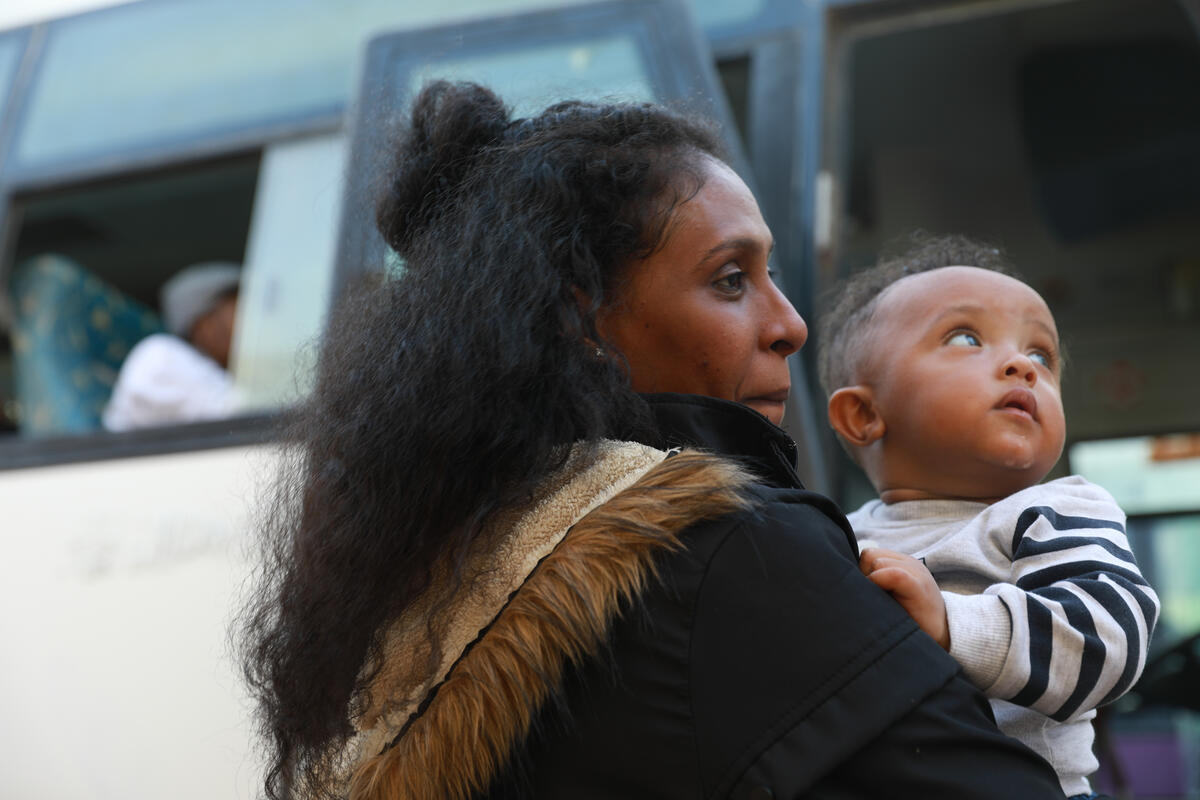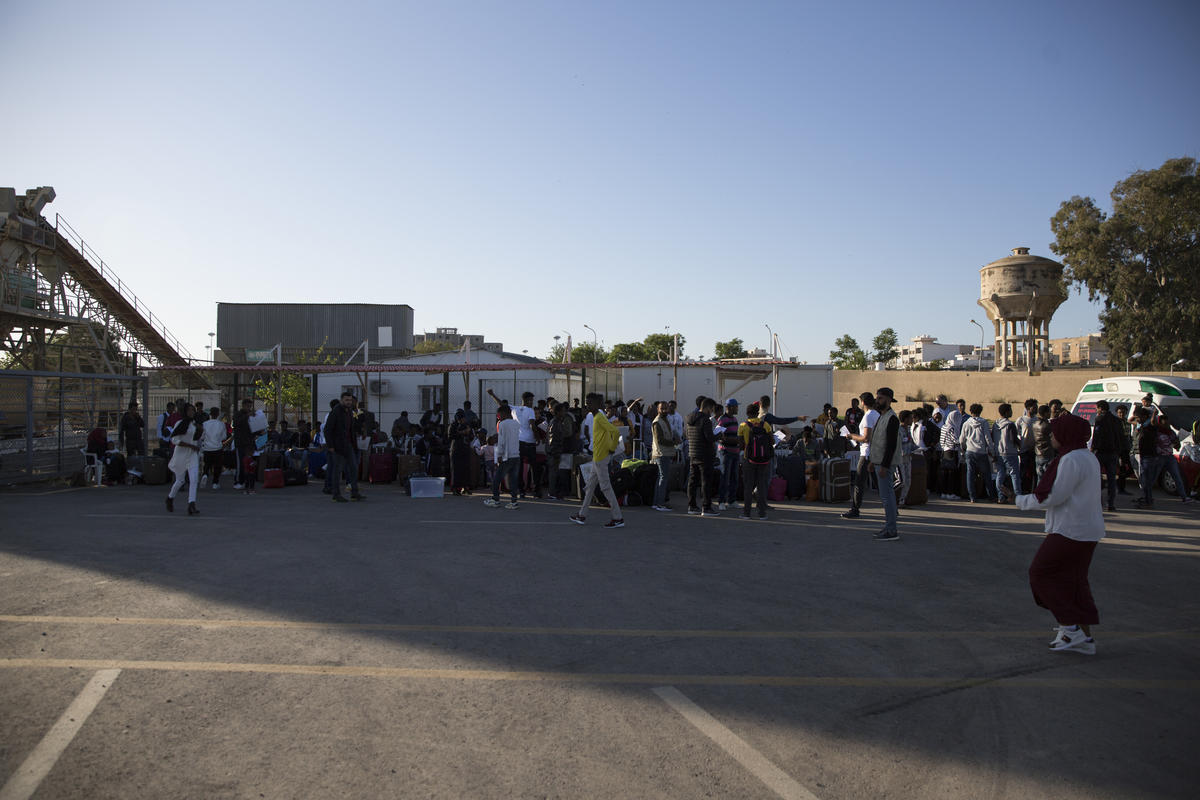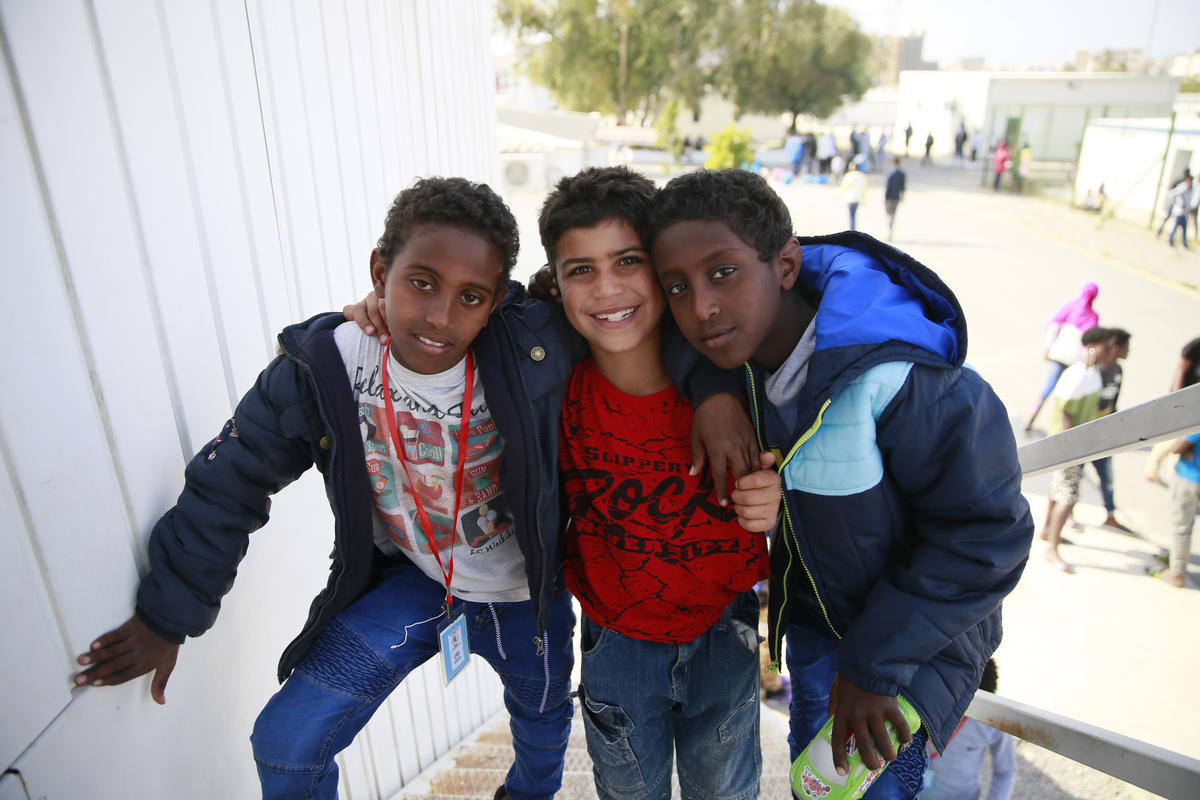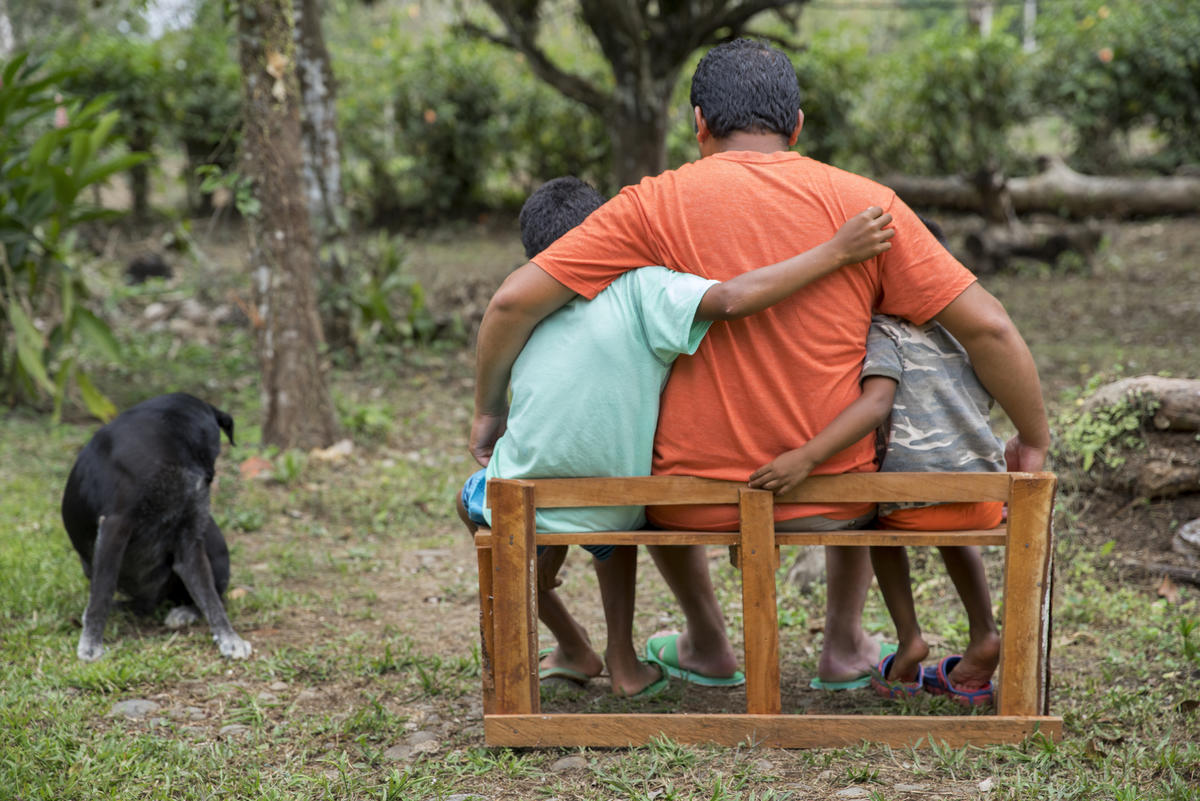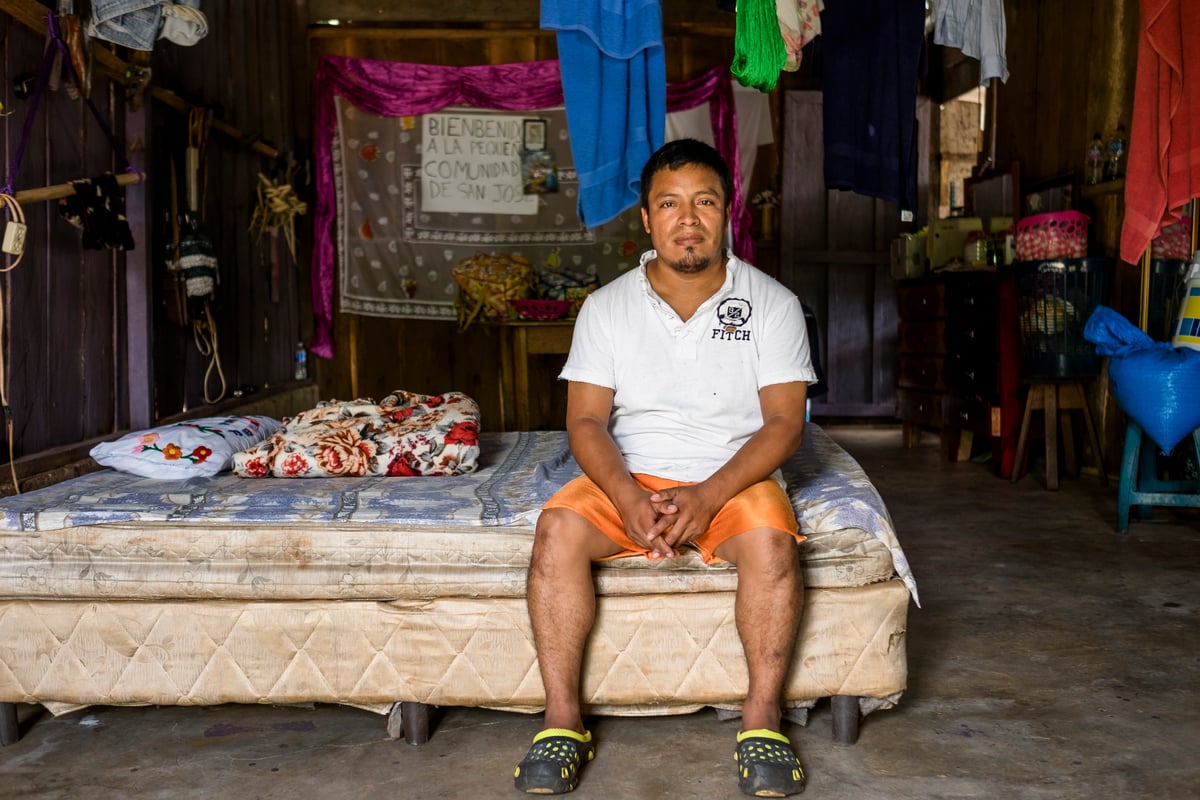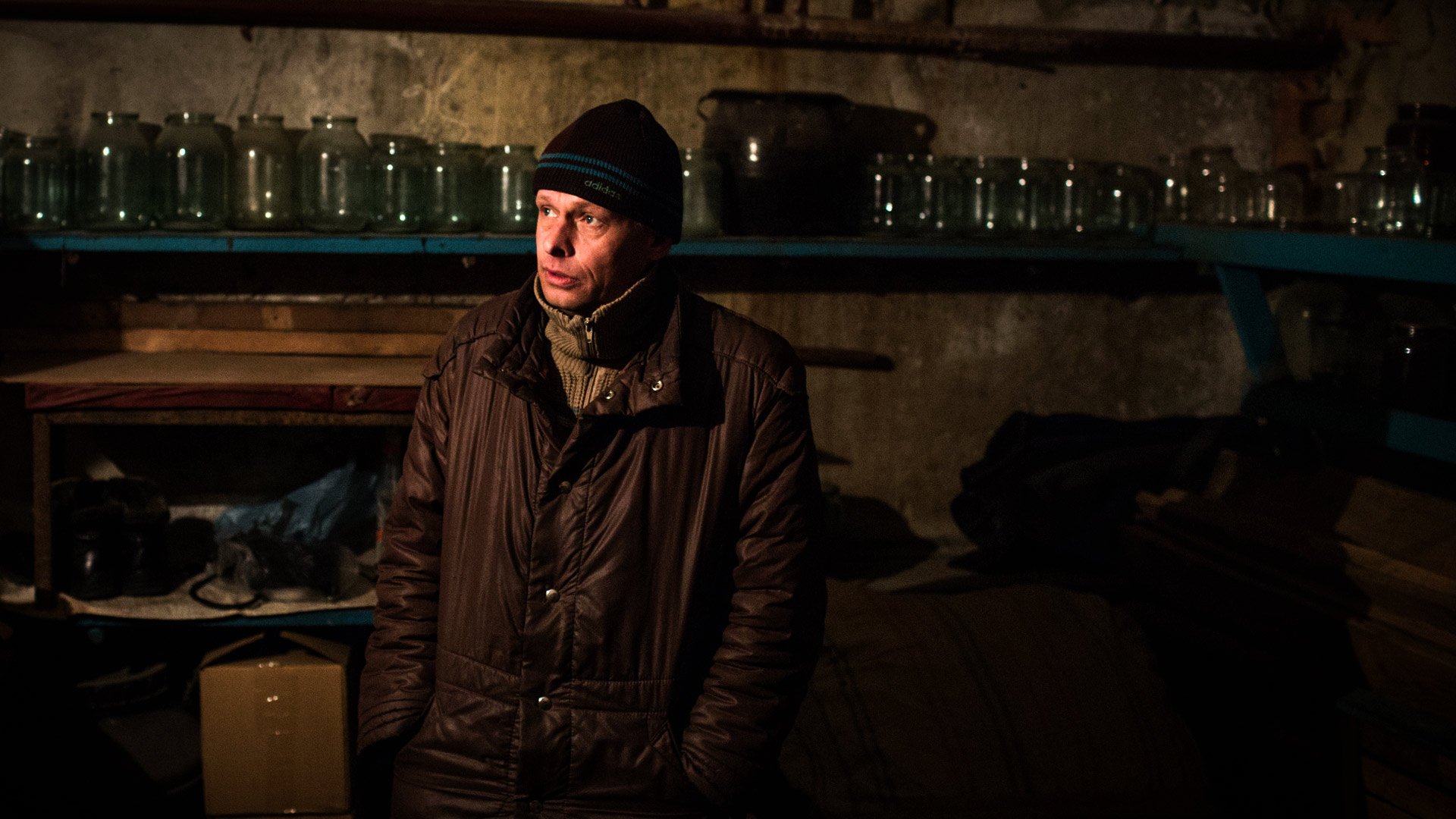UNHCR mourns loss of award-winning aid worker
UNHCR mourns loss of award-winning aid worker
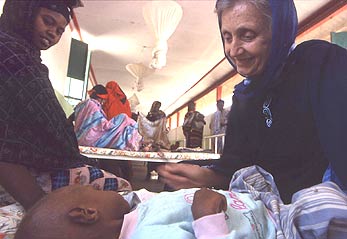
NAIROBI, Kenya, Oct 6 (UNHCR) - The UN refugee agency today expressed shock and sadness over Sunday's brutal murder of Dr Annalena Tonelli, an Italian humanitarian worker who had dedicated her life to helping Somalis for more than three decades.
Dr Tonelli, 60, was shot and killed on Sunday night on the grounds of her hospital in Borama, north-western Somalia. The exact circumstances of the shooting are not yet known.
"All of us at UNHCR are devastated by Dr Tonelli's death," said UN High Commissioner for Refugees Ruud Lubbers, who in June presented the Italian woman with the 2003 Nansen Refugee Award for her humanitarian work among Somalis, many of them returnees and displaced people.
He added, "We were so proud to have been able to honour the wonderful work she did for the poorest of the poor, including many refugees, over the past three decades. She dedicated her life to helping others, carrying out her noble mission in remote, difficult places little noticed by the outside world. In doing so, she touched the lives of thousands of people, demonstrating that individuals can still make a huge difference. We mourn the loss of a truly great woman."
As UNHCR Representative for Somalia, Simone Wolken worked closely with Dr Tonelli. "I am absolutely devastated to lose Annalena, whose work had done so much good for so many people," Wolken said today in Nairobi.
Shunning publicity for her 33 years of humanitarian service, Dr Tonelli had agreed to accept the Nansen Refugee Award on June 25 this year to refocus the world's attention on the forgotten crisis in Somalia.
She was best known for her pioneering work in tuberculosis (TB) control in Africa, forcing patients to stay under her roof and complete their course of medication until they were fully cured. Her TB hospital in Borama treats about 200 inpatients and 200 outpatients every day.
Branching out into the treatment of HIV/AIDS, she targeted high-risk groups and showed AIDS awareness videos to prostitutes, drivers and traders whose travel contributes to the spread of the disease.
Dr Tonelli started a school for deaf and disabled children, and sponsored twice-yearly visit of surgeons from a German charity to restore vision to people with cataracts. She was also a strong advocate against female genital mutilation, persuading many of the traditional circumcisers in Borama to give up the practice and join her campaign.
A lawyer by training, she knew at the age of five that she wanted to help others. At 27, she became a teacher in north-eastern Kenya, and earned diplomas in tropical medicine, community medicine, control of TB and leprosy in order to better carry out what she saw as her true calling - treating TB patients.
Moving to Somalia in 1986, she distributed food in Mogadishu during the civil war, treated TB patients in southern Somalia before setting up her TB hospital in Borama, Somaliland.
In Borama, she lived simply, owning no possessions and eating the same food as her patients. During her many years in Somalia, she had been in danger many times - kidnapped once and several times subjected to beatings, banditry and death threats. But she rejected any notion that her life was one of sacrifice.
"There's no sacrifice. It's pure happiness. Who else on earth has such a beautiful life?" she said earlier this year.

